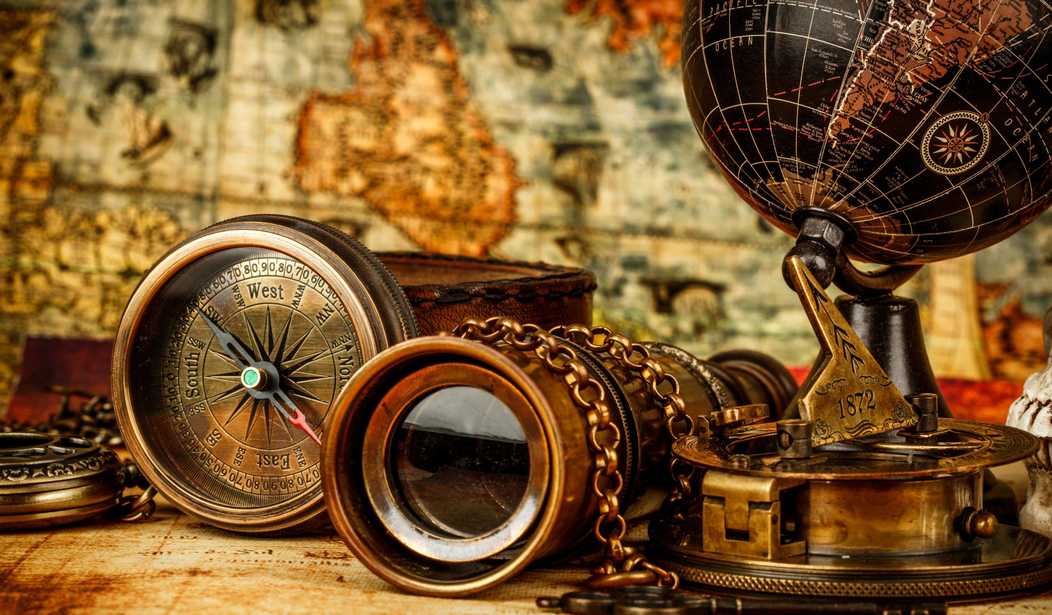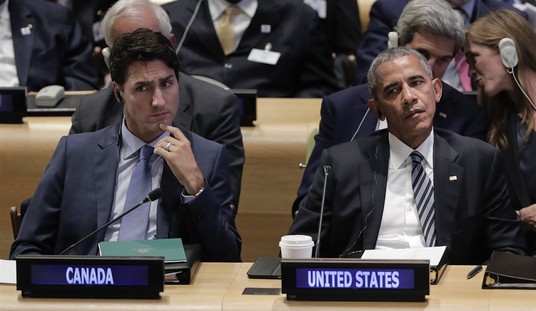First I’ll start with a few personal anecdotes. About four years ago I was talking to a 13-year-old young lady in our church. She commented that her birthday was coming up. It was January 19! I replied, “Wonderful! You and Robert E. Lee have the same birthday!” She stared at me blankly. It dawned on me that she had no clue who Lee was.
I said, “Have you ever heard the name Robert E. Lee before just now?” She slowly turned her head side to side. “Stonewall Jackson?” Nope. “Ulysses S. Grant? Sherman?” Double nope. I was stunned. When I was in the FOURTH grade, every single kid — boy and girl — knew the names of the major commanders of the Civil War, who the two presidents were, and the names of the major battles and who won. She had never heard of any of this.
I told her, “This is not your fault. You can and should learn more about our history. It’s very important and good for you. But you are being cheated in your education.”
Just a few days ago, I was speaking to a graduate of a supposedly “good” high school. The student was summa cum laude (I graduated “Laudie how come?!”). Anyway, I asked her about the significance of June 6, 1944. She couldn’t tell me.
Clue: We were invading a country to liberate it. “Oh! Oh! That was something with the Germans, right?” Right, I told the summa cum laude graduate. Normandy. France. We were fighting the Nazis. What war was that? “World War … One?” Graduate of a “good” high school.
I have spoken to high school kids who could not tell me the birthday of our country. Who the last three Presidents were. Who signed the Declaration of Independence. What the Bill of Rights is. “Name three or four amendments to the U.S. Constitution,” I would say. Blank stare.
These are good kids I’ve been talking to over the past few years, and they don’t know our own history. Much less world history (ancient, medieval, or modern). What’s going on???
Here is a clip from Jay Leno’s “Jaywalking” in which he interviews people on the street. These abysmally ignorant answers from American citizens regarding the most simple and basic of questions about our nation’s history and government are shocking and embarrassing … but from what I’ve personally experienced, not too unusual:
These articles, from The New York Post and Townhall, examine the decline of history in America’s public schools. For whatever reasons, the facts are that American students by and large simply do not know the history of our great nation (warts and all), or the history of other civilizations. If your school is doing a good job in this area, wonderful. However, it seems that many are not. This is tragic and will have far reaching disastrous results in the near future.
Why is this even important? A thorough knowledge of history tells us why we are here. How we became who we are today. Thus, the stories of the past can also tell us where we need to go. For example, if our founding fathers established a constitutional republic based upon the idea that we have God-given rights, then it is our duty as citizens to continue to preserve those rights that are written out in our founding documents. (And we need to know what those documents are and what they say and do not say.) We need to know WHERE their ideas about freedom came from and their implications for us today.
History teaches us what we must avoid. I have been hearing and reading in the news about America entering a new civil war. Well, I tell ya, having studied the last one for almost 50 years, I can honestly say that we sure don’t want to go there. The last war cost us 750,000 deaths, and I don’t want to see something like that in my day.
Learn from the mistakes of the past. Please. Hopefully, we learn about philosophies and economic theories that have failed people and destroyed nations (particularly in recent history), and desire not to repeat such failed ideas. But humans are stubborn creatures, sadly. History teaches that, too.
In a study of history, we learn to commemorate and honor and value the sacrifices of those who went before us. I remember my parents and the stories they told me of how they endured the Great Depression. So, today I try to uphold the things they learned and valued. I have talked to many World War II vets. So, I want to live in such a way that honors them and the sacrifices of those who never returned. Their stories make me grateful.
History informs us about other cultures, and the differences between their values and ours. We study the great art, music, architecture, political theories, religions, geography, governments, economies, wars, pestilences, and advances in science. We read about real people who handled the difficulties of their days … and hopefully learn from them. History is the story of people, and people are fascinating. Villains, heroes, the ordinary and the magnificent. History is captivating.
So, how can parents who don’t have a degree in history, who never really cared that much about it when they were in school, teach it to their kids if the schools are not doing their job? Here are a few ideas.
1. Teach heroes.
When my kids were little, I read to them stories about George Washington and Robert E. Lee and George Patton. I told them about famous missionaries (Gladys Aylward and David Livingstone are my favorites). I even read fiction like Tom Sawyer, the The Adventures of Robin Hood, Robinson Crusoe, and Anne of Green Gables. But in the fiction, they learned how people in those days thought and lived.
I wanted my kids to have heroes to forge their character. Colonel Joshua Chamberlain at Gettysburg, or Chief Joseph, or Marie Curie, or Marco Polo, or Frederick Douglass. Get your kids to read amazing stories about the Vikings, or the Mongols, or the Incas, or the Samurai … just get a children’s book from the library and read that out loud to the kids. And they will hang on every word.
One very good series that teaches good lessons from real history and does it in a wonderfully entertaining way is the “Rush Revere” series on American history. I have listened to the audio versions, and my whole family loved them.
2. Watch SOME movies.
Only some. Today, it seems that the movie has almost overtaken books. Maybe it has. Movies are good, but passive. In my opinion, reading a book engages the imagination and stimulates more thought. Nevertheless, here is a list of some movies that I think teach pretty good history. You can watch any of these with the whole family.
The “Drive Thru History” series on DVD is also great for kids (and adults).
3. Go places.
If your wallet can afford it, go to Gettysburg. Independence Hall in Philadelphia (I still get shivers when I go there and look at George Washington’s chair). Yorktown, Jamestown, Williamsburg. In Washington, D.C., go to the Smithsonian (especially the Air and Space Museum!!! Holy cow, they have the Wright Brothers airplane there, and Chuck Yeager’s jet that broke the sound barrier, and the Apollo spacecraft, and V-1 and V-2 rockets from World War 2 and…and…!!!!).
Go to the Air Force Museum in Dayton, Ohio (it’s free, like the Smithsonian). Or the U.S. Marine Corps Museum in Quantico, Virginia (free too). Art is history, so how about the Cleveland Museum of Art or the Philadelphia Museum of Art? In Chicago, there is the Museum of Science and Technology (they have the ONLY U-Boat we ever captured in there!).
Go to re-enactments (French and Indian War time period, Revolutionary War, Civil War, World War II, you name it). When I taught in Fredericksburg, Virginia many years ago I took my students to an apothecary shop downtown. We learned about medicine from 200 years ago! Absolutely fascinating, and the kids loved it!
Don’t forget to teach about very recent history too. If you can, go to the United States Holocaust Museum and Memorial in Washington, D.C. This is not for small children. But adolescents and teens should go. This is a traumatic place to visit, but necessary. My family left the museum in absolute stunned, heart-broken silence. But we’re glad we went.
If you can ever make it to the September 11 Memorial/Museum in New York City, please go. It is very, very sobering. The kids must know what we are up against.
Or go to the memorial to Flight 93 Memorial near Shanksville, Pennsylvania.
4. Teach, teach, teach.
As a parent, you are always teaching. Fill your children’s minds with fascinating lessons from the past. Make the most of every opportunity. When my daughter was little, we’d ride around in the truck to go on errands, and she would say, “Daddy tell me a story.” So, I would tell her the story of Corrie ten Boom, or the Pilgrims or the Battle of the Bulge (that was her favorite, believe it or not… Patton coming to the rescue was what she loved to hear every time!)
Take them to their grandparents or great-grandparents if they are still around, and let the kids ask questions about what life was like many years ago. (Record it for posterity.)
There are people in this country who seriously want to erase history, so that only their version of it will remain. It’s up to the parents to fill in the blanks when the schools won’t teach history. We must teach ALL of it — what we like, and what we don’t like. Our kids will be the richer for it. (And they won’t embarrass themselves when Jay Leno asks them basic questions about their country’s history.)








Join the conversation as a VIP Member